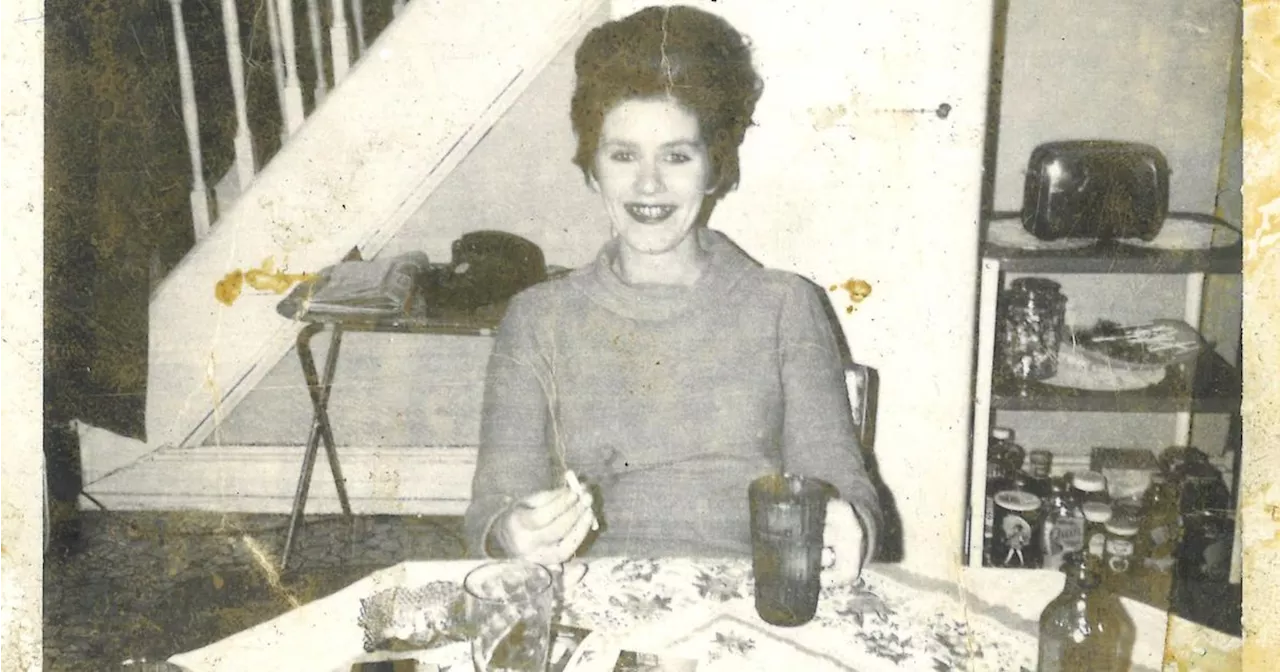A poignant reflection on a complex relationship between a Black journalist and his white mother who struggled with mental illness. The author shares his journey of discovering his mother and the unexpected lessons she taught him about resilience and hope in a racially divided America.
I tried not to stare when I first saw her. Her gaunt, heavily lined face made her look older than I expected. She wore a dingy pumpkin-orange thrift-store turtleneck that swallowed her 5-foot-7, 98-pound frame. But her ice-blue eyes sparkled like a kid’s on Christmas morning. That was the first of many visits.
Most followed the same script: her astonished joy upon my arrival, my mechanical hug, and then sitting on her couch to talk about her favorite topic, classic torch love songs from the 1950s and early ’60s. She’d close her eyes to ponder. “Nat King Cole,” she’d announce, nodding in reverence. After about an hour, I’d stand to leave. Her smile would evaporate. Another awkward hug. As I left, she’d call out, “Don’t take any wooden nickels.”\On the surface, we had nothing in common. She was a white Irish Catholic woman who grew up in a family that freely used the N-word, thought that Black people were lazy, and believed that Black and white people should live apart. I was a young Black man who grew up primarily in foster homes in a Black inner-city neighborhood where just about everyone — including me — regarded white people with distrust or contempt. Yet she was my mother. And, as the years have passed, she’s become something else. She’s the person I find myself turning to when I struggle with the mixture of emotions that so many Americans are experiencing right now. Many of us are exhausted, demoralized, and drained by constant political and racial divisions. Countless Americans have become, as author David Brooks and elsewhere, I’ve covered virtually every so-called racially transformative event in America during the past 32 years, from the Rodney King riots in 1992 to the George Floyd “racial reckoning.” All of them generated massive hope for transformational change; all were followed by a massive letdown. At my lowest moments, I’ve wondered whether human beings are too susceptible to racism and tribalism to make democracy work. But my mother offered another way to look at the future, without ever intending to do so. She was a person who seemed to have no power or reason to hope. Still she, and others like her, gave me the confidence to wish for more. \The author, around age 27, with his mother, Shirley, and his father, Clifton “Tony” Blake Sr. 'We are sitting in my father’s house in West Baltimore,' the author writes. In the beginning, I thought I’d never know her. When I was born in the mid-1960s, interracial marriage and intimate interracial relationships were, as in much of the country. My mother vanished from my life not long after I was born, and so did her family. No one told me why. I didn’t know what she looked like. My father’s name was on my birth certificate, but hers was not. All he told me and my younger brother, Patrick, was this: ”Your mother’s name is Shirley, she’s white, and her family hates Black people.” Their hatred did not surprise me. I grew up in a West Baltimore neighborhood that served as the setting for the HBO series “The Wire,” a crime drama that depicted a Black inner-city community ravaged by racism and drug violence. I routinely heard my friends and neighbors refer to white people as “honkies” and “crackers.” I heard white people yell “Nigger!” when I strayed into their neighborhoods. During my entire time in Baltimore’s public schools — from Head Start to high school graduation — I saw only one white student. When I grew up in the 1970s and early ’80s. I was too ashamed to tell anyone my mother was white. I marked her race as “Black” on school forms. I became a closeted biracial person. At 17, though, I discovered that there was one place worse than my neighborhood: where I first met my mom. There was another reason why I tried not to stare when I first saw her. I was trying to hide my emotions because I was in shock. I was standing in the waiting room of a psychiatric facility called, a severe mental illness. I didn’t make that discovery until I met her in Crownsville. No one in my family, including my father, had told me — not even on the car ride to the hospital. They didn’t know how. My father had waited until I had graduated from high school to suddenly ask me one day if I wanted to meet my mom. He didn’t think I could handle knowing about her illness until I became a young man. Many people didn’t talk openly about mental illness in their families when I met my mother in the early 1980s. For over 30 years, I blocked out most of the memories from that first meeting, but one detail lingered. Before I left, my mother looked at me and made a request. “Ah, yeah, I will,” I said, not knowing at the time that St. Jude is the patron saint of hopeless causes. Outwardly, I didn’t skip a beat after that meeting. I attended and graduated from Howard University, a historically Black college in Washington, D.C., where Kamala Harris was a classmate. I became a journalist at several newspapers before joining CNN. But I had stepped out of one closet into another
Race Relations Family Race Relations Family Mental Illness Hope Resilience Interracial Relationships
Canada Latest News, Canada Headlines
Similar News:You can also read news stories similar to this one that we have collected from other news sources.
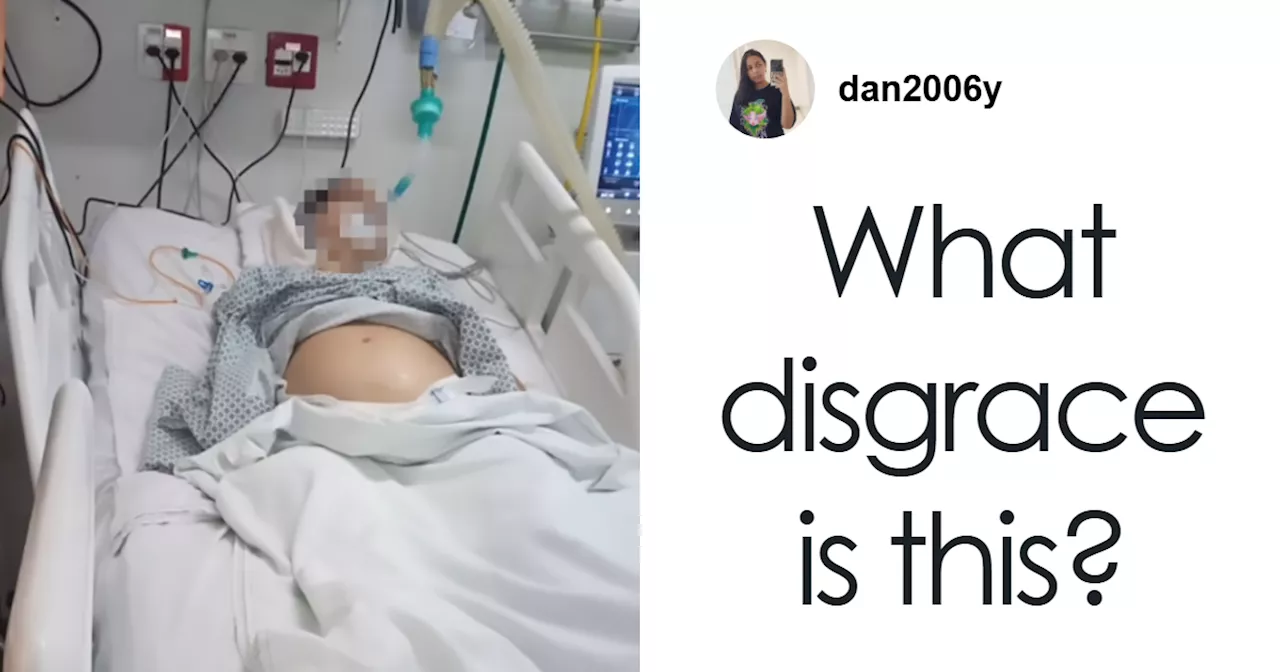 Tragedy and Hope: Brazilian Mother's Brain Death Raises Complex Ethical QuestionsA 21-year-old Brazilian woman, Joyce Sousa Araújo, tragically passed away due to a brain aneurysm, leaving her unborn child's life hanging in the balance. Doctors are striving to deliver the baby when he reaches 7 months of gestation, highlighting the ethical and legal dilemmas surrounding brain death and pregnancy.
Tragedy and Hope: Brazilian Mother's Brain Death Raises Complex Ethical QuestionsA 21-year-old Brazilian woman, Joyce Sousa Araújo, tragically passed away due to a brain aneurysm, leaving her unborn child's life hanging in the balance. Doctors are striving to deliver the baby when he reaches 7 months of gestation, highlighting the ethical and legal dilemmas surrounding brain death and pregnancy.
Read more »
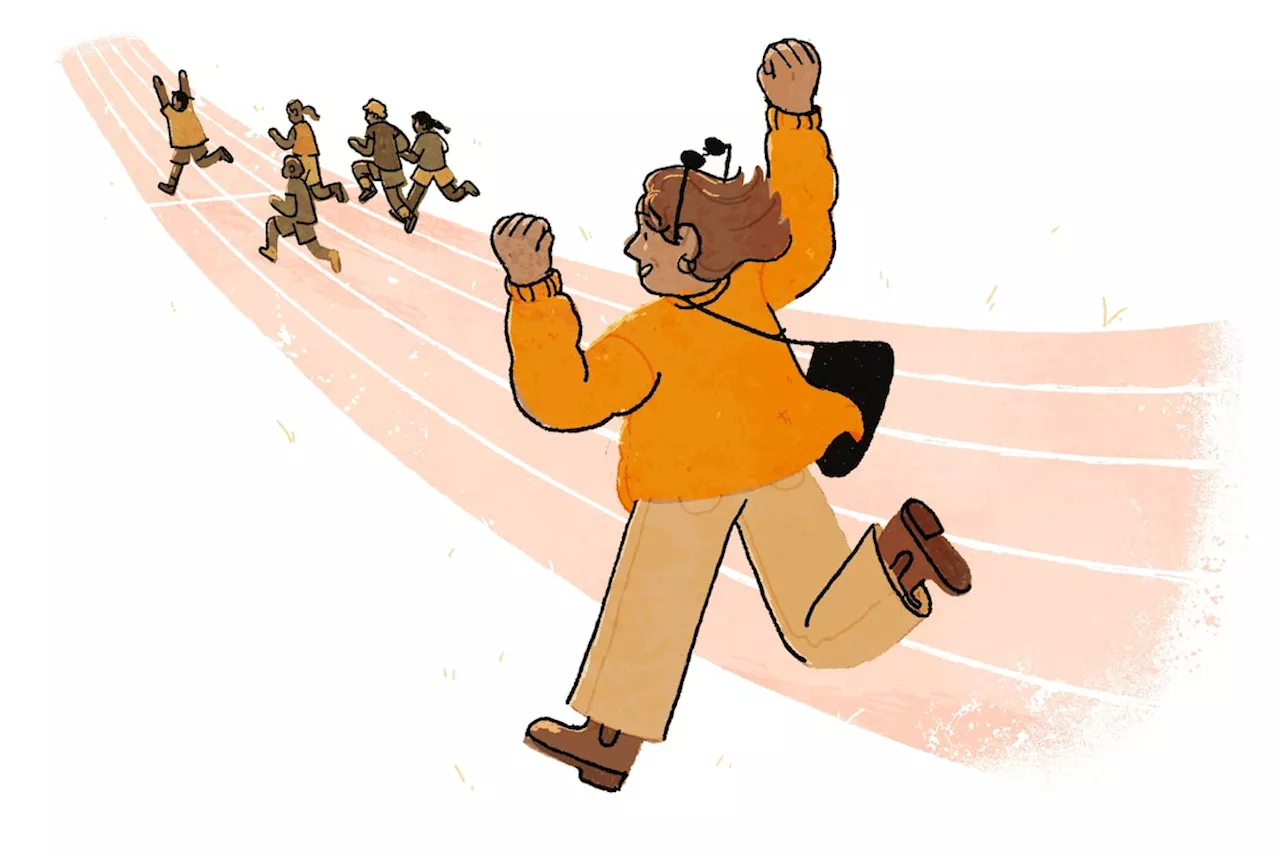 Cheering on my kids finally taught me to love (and appreciate) sportsI had an idea that athletics would teach them teamwork, fair play and being a good loser and winner, but I can’t get over how inspirational I have found watching them play
Cheering on my kids finally taught me to love (and appreciate) sportsI had an idea that athletics would teach them teamwork, fair play and being a good loser and winner, but I can’t get over how inspirational I have found watching them play
Read more »
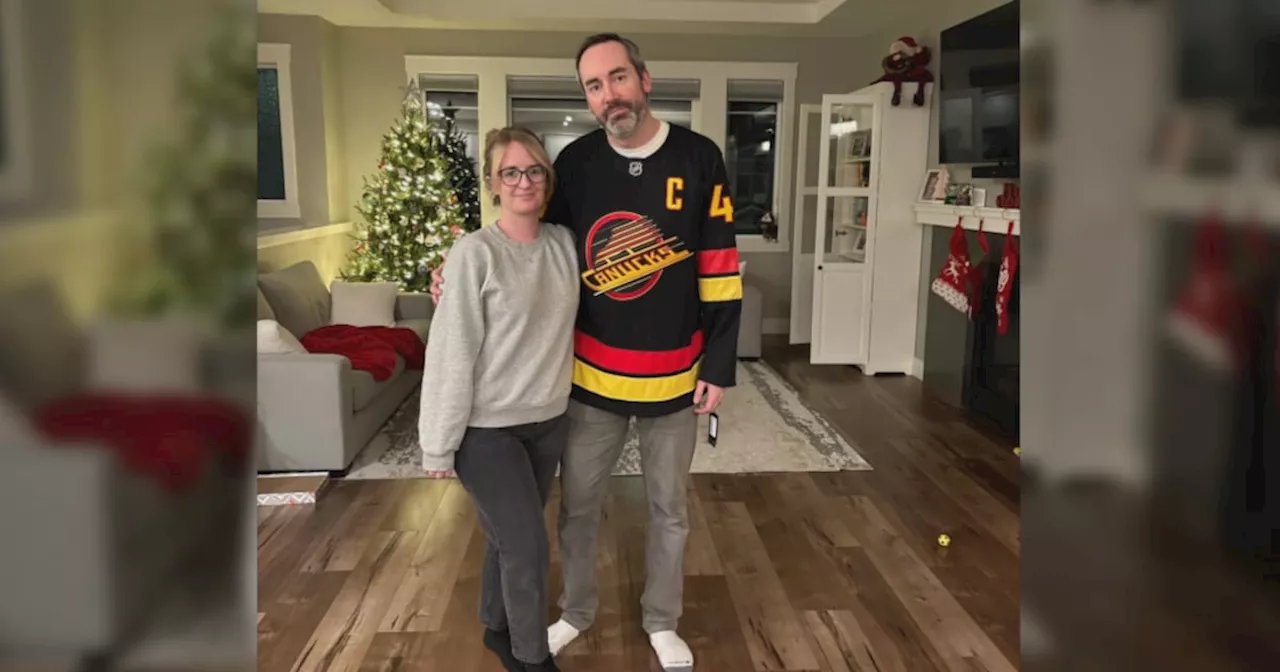 Internet stranger's kind gesture restores Canucks fan's faith in humanityA Nanaimo, B.C., couple is in awe at the kindness of an internet stranger who helped them track down a coveted Christmas gift.
Internet stranger's kind gesture restores Canucks fan's faith in humanityA Nanaimo, B.C., couple is in awe at the kindness of an internet stranger who helped them track down a coveted Christmas gift.
Read more »
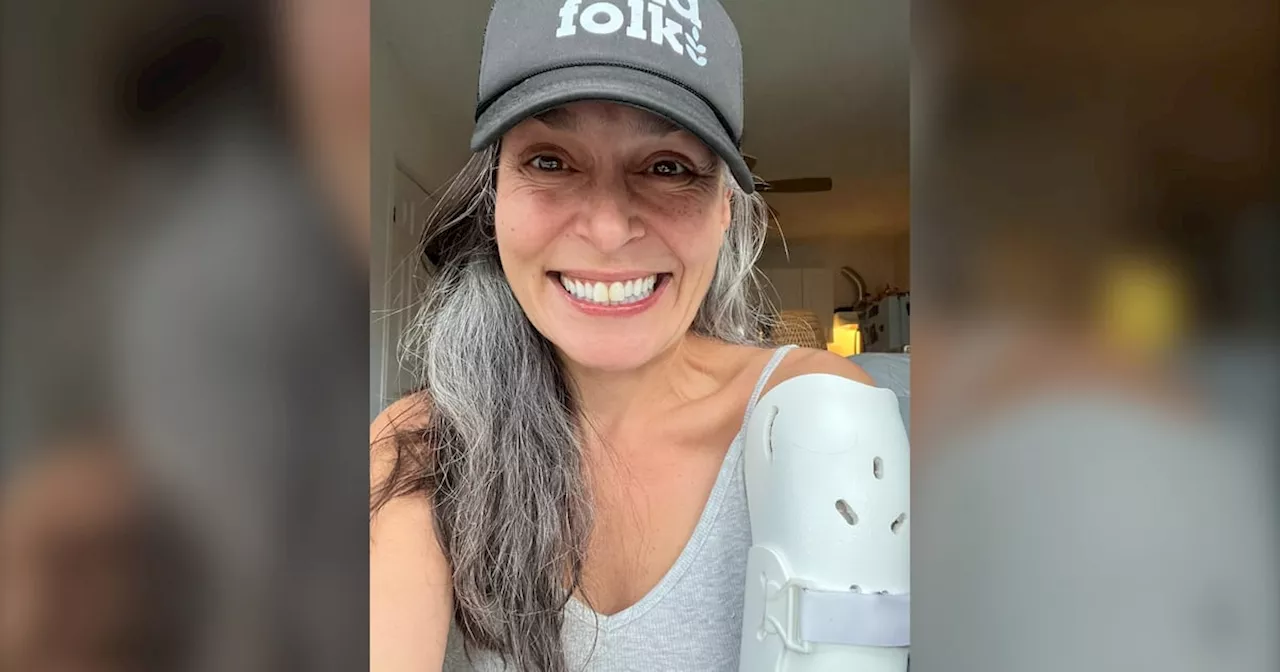 Toronto woman thanks ‘stranger angel’ who came to her aid after serious cycling accidentAlmost four months after being seriously injured in a cycling accident, Toronto resident Stephanie Pimentel finally got the chance to thank one of the “stranger angels” who came to her aid that fateful day.
Toronto woman thanks ‘stranger angel’ who came to her aid after serious cycling accidentAlmost four months after being seriously injured in a cycling accident, Toronto resident Stephanie Pimentel finally got the chance to thank one of the “stranger angels” who came to her aid that fateful day.
Read more »
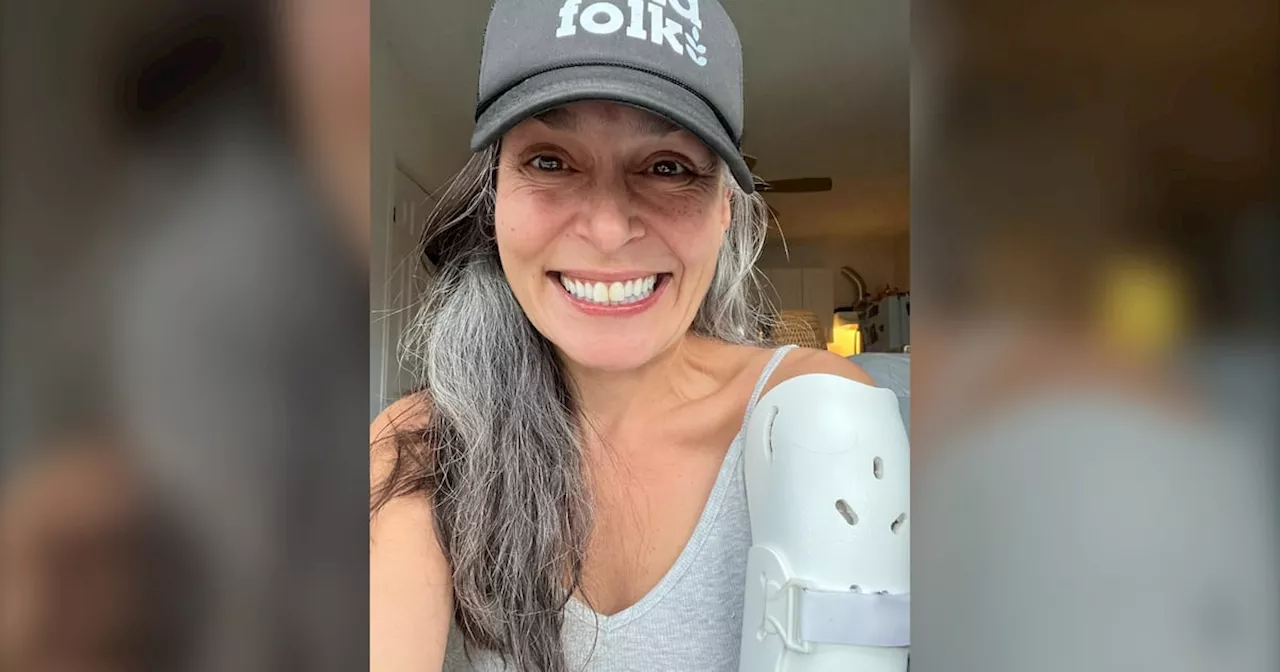 News Roundup: Toronto Woman Thanks 'Stranger Angel,' Canadian Farmers Fear Trump Tariffs, Netflix Raises PricesA collection of news stories from across Canada and the world, including a Toronto woman thanking a stranger who helped her after a cycling accident, Canadian farmers expressing concern over potential trade policies, Netflix announcing price increases, and more.
News Roundup: Toronto Woman Thanks 'Stranger Angel,' Canadian Farmers Fear Trump Tariffs, Netflix Raises PricesA collection of news stories from across Canada and the world, including a Toronto woman thanking a stranger who helped her after a cycling accident, Canadian farmers expressing concern over potential trade policies, Netflix announcing price increases, and more.
Read more »
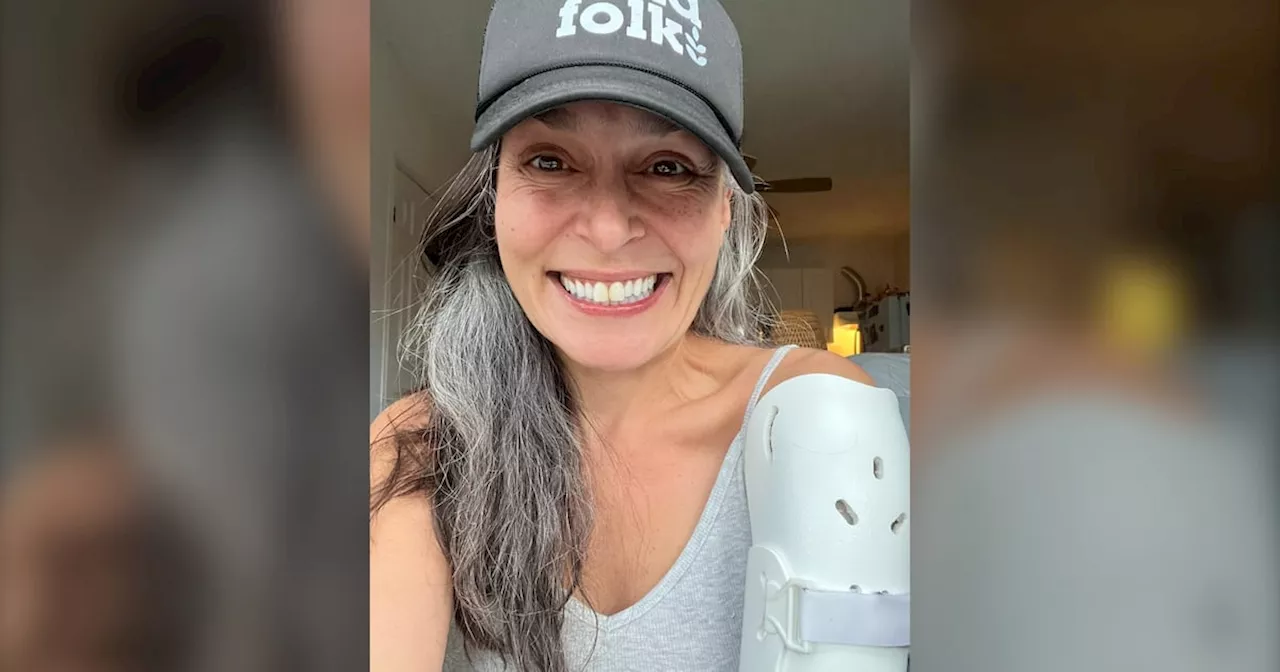 Injured Cyclist Finds Her 'Stranger Angel' After AccidentFour months after a serious cycling accident in Toronto, Stephanie Pimentel finally found the young woman who came to her aid. Kimberly Crabtree sat with Pimentel, comforted her, and kept her distracted until paramedics arrived.
Injured Cyclist Finds Her 'Stranger Angel' After AccidentFour months after a serious cycling accident in Toronto, Stephanie Pimentel finally found the young woman who came to her aid. Kimberly Crabtree sat with Pimentel, comforted her, and kept her distracted until paramedics arrived.
Read more »
